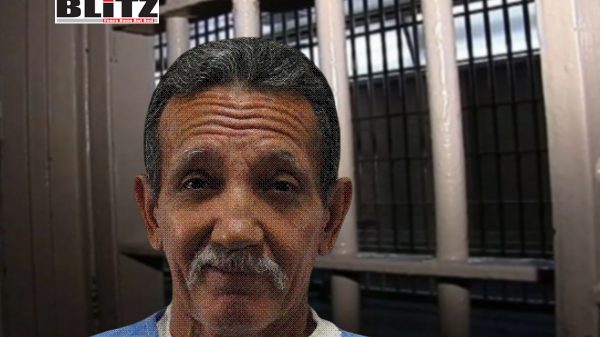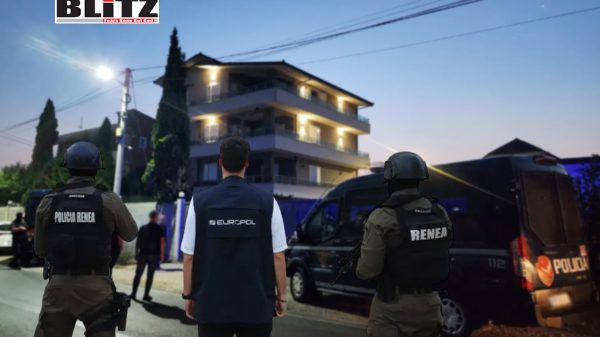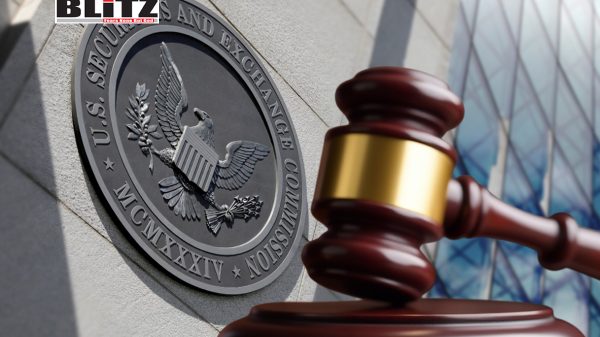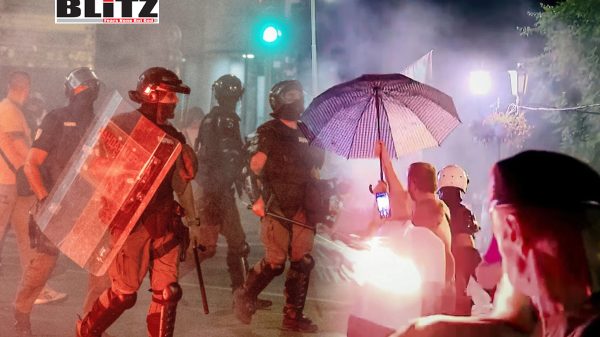Texas Mexican mafia leader sentenced to 25 years in meth trafficking case
- Update Time : Tuesday, August 19, 2025

A high-ranking member of the notorious Texas Mexican Mafia has been sentenced to a lengthy prison term, marking the end of a federal investigation into one of San Antonio’s most entrenched criminal organizations. On August 14, US District Judge Orlando Garcia handed down a 25-year federal prison sentence to David Botello, 54, also known by his street names “Torito,” “Bully,” and “Bully-Man.” Botello was described by prosecutors as a “lieutenant of lieutenants” within the gang, a role that placed him at the center of its drug trafficking operations.
The sentencing followed Botello’s December 2023 guilty plea to conspiracy to distribute and possess with intent to distribute more than 500 grams of methamphetamine. Federal prosecutors said Botello had overseen large-scale meth distribution in San Antonio, exploiting his position in the gang to coordinate trafficking networks that spread dangerous narcotics throughout the city.
Botello was no stranger to the justice system. According to court records, he had prior convictions for murder and aggravated robbery with a deadly weapon, offenses that reflected both his violent tendencies and his long-standing commitment to organized crime. Those convictions already painted a picture of a man deeply entrenched in gang culture, but his involvement in narcotics trafficking further solidified his reputation within the Texas Mexican Mafia.
US Attorney for the Western District of Texas Justin Simmons underscored the severity of Botello’s actions, stating in a written release:
“As a leader of the Texas Mexican Mafia, Botello was responsible for the distribution of large quantities of methamphetamine in San Antonio, enriching himself and his fellow gang members to the detriment of so many of our fellow citizens.”
The gang, formed in the early 1980s inside the Texas prison system, has grown into a sprawling criminal enterprise, notorious for extortion, drug trafficking, and brutal enforcement of its rules. Leaders like Botello wielded immense influence, orchestrating operations that reached beyond prison walls and into neighborhoods throughout South Texas.
Botello’s downfall came as a result of a Drug Enforcement Administration-led investigation that began in July 2020. Federal agents, working alongside local law enforcement, tracked his activities as he conspired with other gang members to distribute methamphetamine in San Antonio.
His arrest occurred on July 28, 2020, during what seemed like a routine traffic stop. San Antonio police determined that Botello was driving without a license, but the stop quickly escalated when officers discovered 150 grams of methamphetamine in his possession. The discovery tied Botello directly to the narcotics trade and became the foundation of the broader federal case against him.
By April 2021, a federal grand jury had indicted Botello on three counts of a 14-count indictment that included 11 other co-defendants. Alongside charges related to drug trafficking, Botello also faced accusations of being a felon in possession of a firearm, underscoring the violent nature of his activities.
The Texas Mexican Mafia, often referred to by members as “La Eme,” was originally formed by prison inmates seeking protection and organization behind bars. Over time, the gang expanded its reach far beyond prison walls, establishing itself as one of the most feared and disciplined gangs in Texas. Members engage in a wide variety of criminal activities, from contract killings and extortion schemes to meth and heroin distribution.
The gang enforces strict loyalty and obedience through violence, often punishing disloyalty or disobedience with death. Law enforcement officials say that leaders like Botello were instrumental in maintaining the gang’s rigid hierarchy, ensuring that proceeds from narcotics flowed upward through the ranks.
Botello’s position as a “lieutenant of lieutenants” placed him in a supervisory role, giving orders to other gang lieutenants and ensuring that drug operations functioned smoothly. This rank also meant that he reaped financial rewards while exposing San Antonio communities to the destructive impact of methamphetamine.
For prosecutors and law enforcement, Botello’s sentencing is a significant victory in the ongoing battle against organized crime in Texas. Removing a leader of his stature not only disrupts the gang’s narcotics pipeline but also sends a broader message to other high-ranking members.
However, officials acknowledge that dismantling the Texas Mexican Mafia is no easy task. Its decentralized structure and deeply rooted prison-based operations make it resilient against law enforcement crackdowns. Even as leaders like Botello are imprisoned, others often rise to take their place.
Still, law enforcement leaders insist that each successful prosecution weakens the organization. Federal agents hope that by targeting high-ranking figures and cutting off the flow of drug money, they can gradually undermine the gang’s power base.
The case also highlights the devastating role methamphetamine continues to play in Texas communities. The drug is cheap, highly addictive, and widely available, making it one of the most destructive narcotics on the streets. Federal statistics have consistently shown meth as a leading cause of overdose deaths in the region.
Botello’s trafficking activities, prosecutors argue, contributed to this crisis. By directing large-scale meth distribution, he not only profited but also deepened the cycle of addiction and crime that continues to plague San Antonio and surrounding areas.
With his 25-year sentence, David Botello joins the long list of gang leaders whose reigns have been cut short by federal investigations. His punishment reflects not just his individual crimes but also the broader damage inflicted by the Texas Mexican Mafia’s narcotics empire.
While the sentence marks an important step in holding organized crime accountable, officials warn that the fight against gangs like the Texas Mexican Mafia is far from over. As long as demand for meth remains high and prison-based networks continue to recruit, law enforcement will face an uphill battle.
For now, however, the community can take some relief in knowing that one of the gang’s most powerful lieutenants will spend the next quarter-century behind bars.










